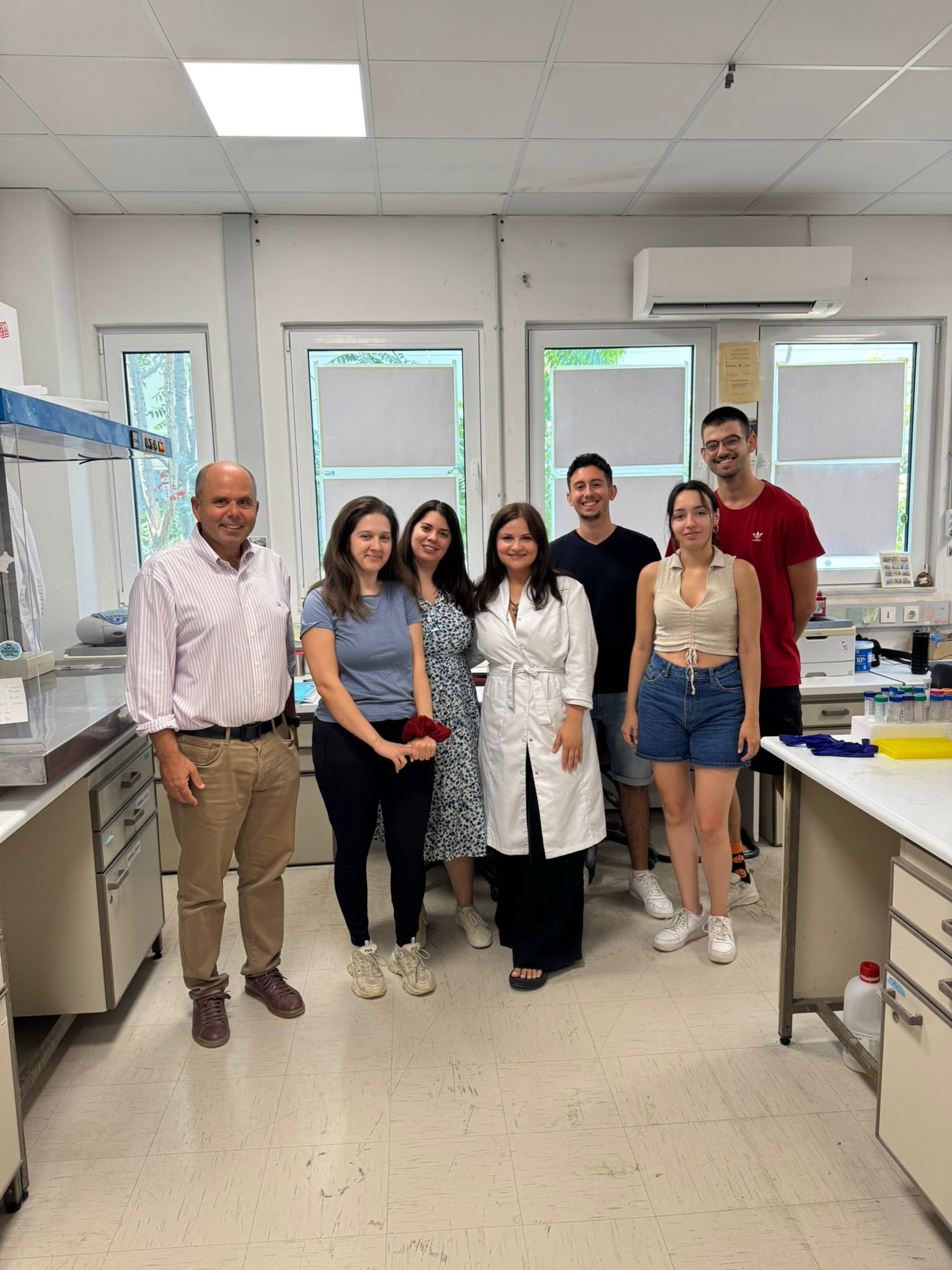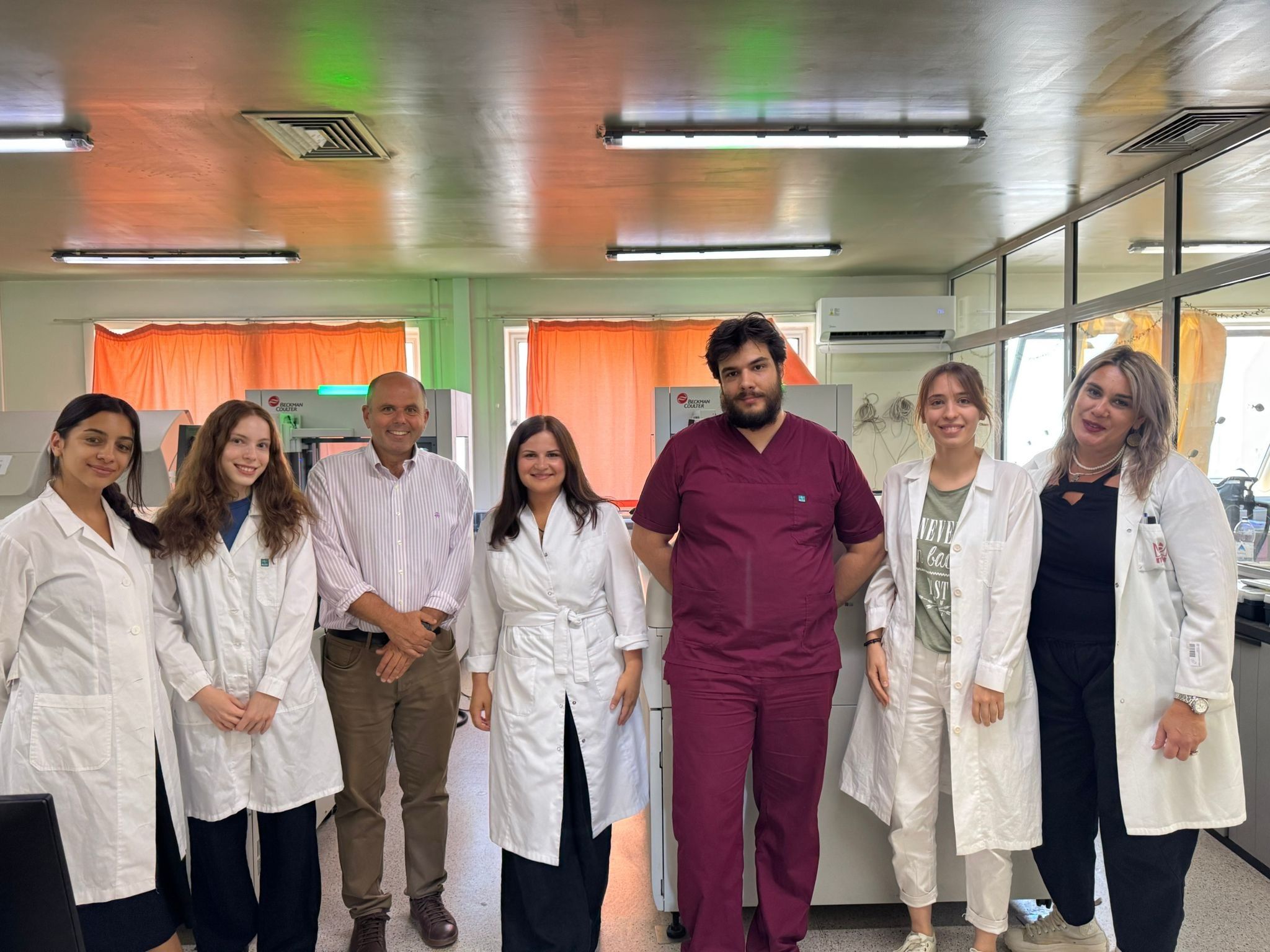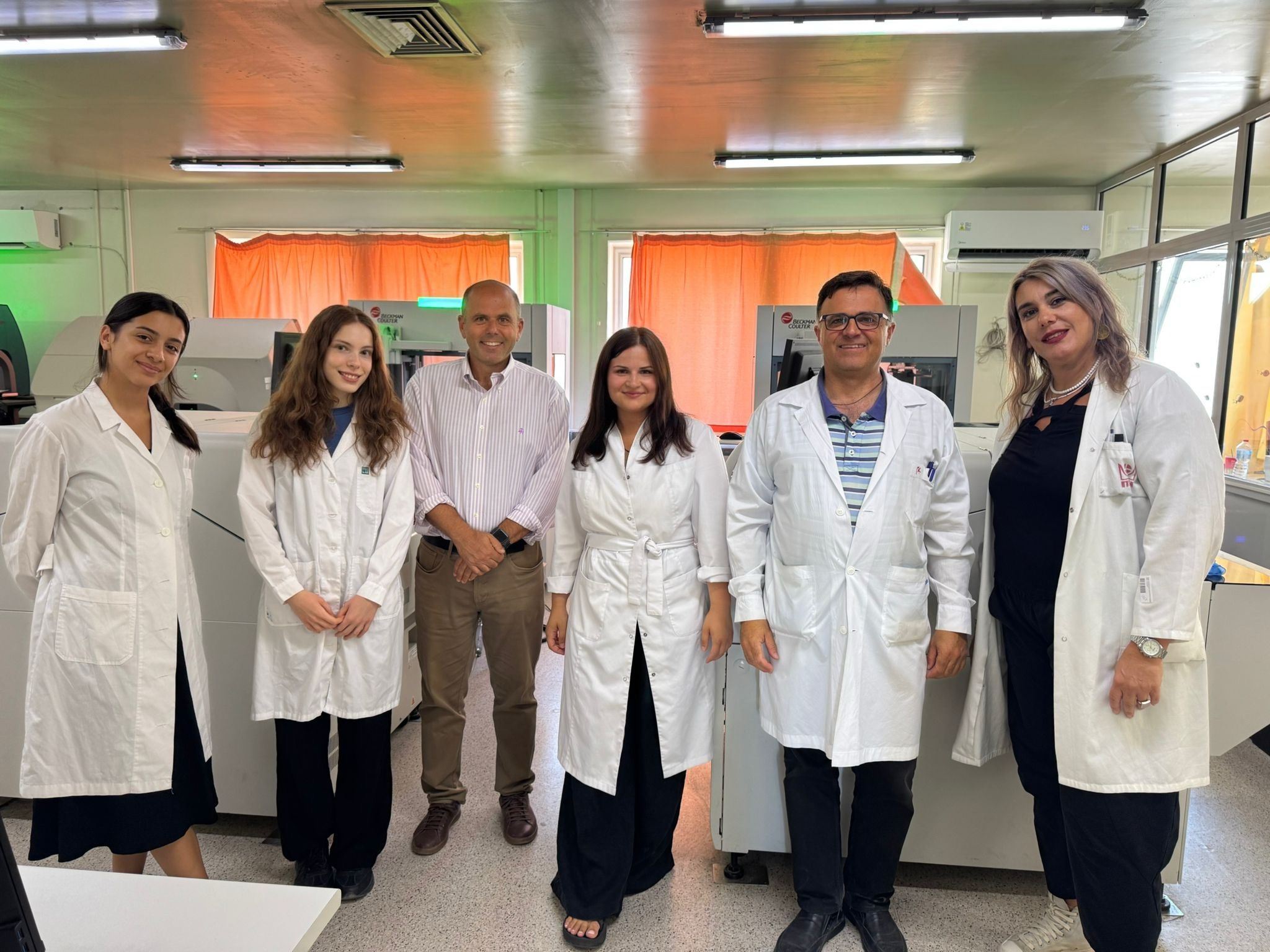EFLM LabX report by dr. Angelina Olena, Latvia
My name is Angelina Olena, a laboratory medicine trainee from Latvia with a strong interest in clinical chemistry, immunology, and molecular diagnostics. In July 2025, I was honored to join the Clinical Chemistry-Biochemistry Laboratory at the University Hospital of Heraklion, as well as the research facilities of the University of Crete Medical School, through the EFLM LabX exchange programme. This opportunity allowed me to experience both clinical and academic approaches to laboratory diagnostics in a well-coordinated, interdisciplinary setting.
The training was thoughtfully structured, combining hands-on exposure to routine diagnostic work with insights into translational and research-based applications. I had the opportunity to observe and learn within both clinical and research environments, which greatly enriched my understanding of laboratory medicine in a broader context.
During my stay, I became familiar with automated platforms and standardization systems used in clinical chemistry. I observed internal and external quality control procedures, accreditation standards, and workflow optimization practices aimed at ensuring the accuracy and reliability of laboratory results. I also learned about a range of semi-automated and specialized techniques, including HbA1c determination, microscopic urine analysis, sperm analysis, and CFTR mutation screening using capillary electrophoresis (panel of 58 mutations).
In the Hematology Department, I observed the preparation and interpretation of peripheral blood smears, the functioning of hematology analyzers, and gained a practical introduction to flow cytometry. Importantly, I also explored flow cytometry within the Immunology Department, where specialists explained its application in the diagnosis of multiple sclerosis and HIV. This experience gave me valuable insight into how immune markers and cellular analysis are used in complex disease diagnostics.
I also had the opportunity to visit the hospital's blood bank, where I learned about transfusion protocols and sample handling procedures. In the Microbiology Department, I observed blood culture processing and incubation, microscopy for pathogen detection, and was introduced to the MALDI-TOF mass spectrometry system for rapid microbial identification. Microbiological safety and contamination control measures were also emphasized throughout the training.
Beyond clinical diagnostics, I was introduced to molecular techniques and their application in a clinical setting. I participated in laboratory meetings and research discussions, which provided exposure to translational methodologies that link scientific research with patient care. My time in the academic environment of the University of Crete added valuable context and perspective to the technical knowledge I acquired.
This training allowed me to strengthen my laboratory skills, broaden my professional knowledge, and better understand how diagnostics and research are integrated in a medical laboratory. I am deeply grateful to Professor Christos Tsatsanis and the entire team at the University Hospital of Heraklion and the University of Crete Medical School for their support, guidance, and openness throughout the program. I return home with fresh ideas, practical insights, and great motivation to apply what I’ve learned in my future work.
Finally, I would like to sincerely thank the EFLM LabX programme for providing such a meaningful and professionally experience.
My name is Angelina Olena, a laboratory medicine trainee from Latvia with a strong interest in clinical chemistry, immunology, and molecular diagnostics. In July 2025, I was honored to join the Clinical Chemistry-Biochemistry Laboratory at the University Hospital of Heraklion, as well as the research facilities of the University of Crete Medical School, through the EFLM LabX exchange programme. This opportunity allowed me to experience both clinical and academic approaches to laboratory diagnostics in a well-coordinated, interdisciplinary setting.
The training was thoughtfully structured, combining hands-on exposure to routine diagnostic work with insights into translational and research-based applications. I had the opportunity to observe and learn within both clinical and research environments, which greatly enriched my understanding of laboratory medicine in a broader context.




